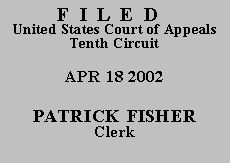

| UNITED STATES OF AMERICA,
MARCUS HAHN, |
|
Marcus Hahn was arrested at his home, where he was cultivating marijuana plants and where he also kept firearms. A jury found him guilty of the following offenses: knowingly and intentionally manufacturing marijuana, in violation of 21 U.S.C. § 841(1) and (b)(1)(B); opening and maintaining a place for the purpose of manufacturing, distributing, and using marijuana, in violation of 21 U.S.C. § 856(a)(1) and (b); possessing a firearm in furtherance of the manufacture of marijuana, in violation of 18 U.S.C. § 924(c)(1)A); and possessing a firearm in furtherance of the maintenance of a place to manufacture, distribute, and use marijuana, in violation of 18 U.S.C. § 924(c)(1)(A). This appeal focuses solely on the sentence Hahn received for the second firearm violation.
II. Discussion
Hahn's challenge to his sentence centers on the following statutory language: "In the case of a second or subsequent conviction under this subsection, the person shall (i) be sentenced to a term of imprisonment of not less than 25 years . . . ." 18 U.S.C. § 924(c)(1)(C). The district court found that the second 924(c) conviction was a "second or subsequent conviction," and it therefore imposed the mandatory sentence of twenty-five years for that offense. Hahn argues that the statute does not authorize treating his second firearm conviction as "second or subsequent" to the first for purposes of the statute's sentencing enhancement, because the underlying drug crimes were part of a "continuing incident" and were "coterminous in space and time."
We review the legality of a sentence de novo. United States v. Price, 75 F.3d 1440, 1446 (10th Cir. 1996).
The Supreme Court has held that multiple 924(c) convictions in a single proceeding count as "second or subsequent convictions" for purposes of the statute's sentencing requirements. Deal v. United States, 508 U.S. 129 (1993). Hahn argues, however, that the two firearms charges here one for possession in furtherance of growing marijuana and one for possession in furtherance of maintaining a place for that purpose both arose from the possession of the same firearms in connection with the same marijuana-growing activities. For this reason, he argues, the second of these convictions cannot be a "second or subsequent conviction" within the meaning of the statute. As Hahn recognizes, however, this argument fails under Tenth Circuit precedent.
In United States v. Sturmoski, 971 F.2d 452, 461 (10th Cir. 1992), we wrote that "consecutive sentences may be imposed for multiple 924(c) counts if the offenses underlying each 924(c) count do not constitute a single offense for double jeopardy purposes." In Sturmoski, the underlying offenses were attempting to manufacture a controlled substance and maintaining a place for manufacturing a controlled substance. Id. We held that Congress intended multiple convictions under 924(c), even though the counts involved "the same criminal episode," because Congress intended the underlying offenses to be separate. Id. Specifically, we found that, by making it a crime to maintain a place for manufacturing drugs, "Congress intended to create a new felony that would punish a defendant's use of property for manufacturing activities related to narcotics." Id. Thus, the conviction for maintaining a place for manufacture was distinct from the attempt to manufacture, and, accordingly, the associated 924(c) convictions were distinct from each other. The only difference between the situations in Sturmoski and in this case is that one of Hahn's 924(c) convictions was for possession in furtherance of manufacture, rather than possession in furtherance of attempt to manufacture. Thus, Sturmoski clearly controls the outcome of this case. Hahn's conviction for maintaining a place for manufacture is distinct from his manufacture conviction, and his two 924(c) convictions are also distinct.
We must also reject Hahn's argument that there can be no "second or subsequent conviction" if both convictions involve offenses that were "coterminous in space and time." We have consistently held that, even if possession of a firearm occurs in connection with a single criminal episode, a second 924(c) conviction arising out of that episode can constitute a "second or subsequent conviction" for sentencing purposes. In United States v. Parra, 2 F.3d 1058, 1062 (10th Cir. 1993), the offenses underlying two 924(c) convictions were possession of cocaine with intent to distribute and conspiracy to possess cocaine with intent to distribute. In United States v. Romero, 122 F.3d 1334, 1337 (10th Cir. 1997), the offenses underlying two 924(c) convictions were carjacking and interference with commerce by robbery and extortion.(1) In both cases, we held that the district court properly treated one of the 924(c) convictions as a "second or subsequent conviction." Parra, 2 F.3d at 1071; Romero, 122 F.3d at 1343-44.
III. Conclusion
Thus, prior precedent defeats Hahn's sole argument on appeal. The district court properly treated one of Hahn's 924(c) convictions as a "second or subsequent conviction," and the sentence imposed by the district court is therefore AFFIRMED.
ENTERED FOR THE COURT,
Deanell Reece Tacha
Chief Circuit Judge
*.This order and judgment is not binding precedent, except under the doctrines of law of the case, res judicata, and collateral estoppel. This court generally disfavors the citation of orders and judgments; nevertheless, an order and judgment may be cited under the terms and conditions of 10th Cir. R. 36.3.
**.The Honorable David L. Russell, District Judge, United States District Court for the Western District of Oklahoma, sitting by designation.
1. The statute prohibits possession of a firearm in furtherance of a crime of violence, in addition to possession in furtherance of a drug-trafficking crime. 18 U.S.C. § 924(c)(1)(A).